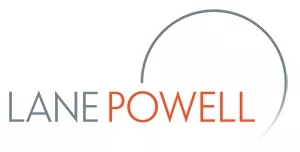When Washington state's minimum wage increases on January 1, 2021, it will have a cascading effect. First, it will increase the salary threshold at which employees are exempted from overtime compensation requirements under the Minimum Wage Act. Second, employees who are no longer exempt from Washington's Minimum Wage Act will become eligible for paid sick leave and paid rest breaks under Washington law. Employers with employees working in Washington state should therefore act quickly to determine how their workforce will be impacted by these legal developments.
Increase to the Washington Minimum Wage
On January 1, 2021, Washington's minimum wage will increase by 19 cents per hour. Employees age 16 and older must be paid at least $13.69 per hour. Employees between 14 and 15 years of age must be paid at least $11.64 per hour.
This change resulted from Initiative 1433, passed by Washington voters in 2017. The initiative required the Washington Department of Labor and Industries (L&I) to calculate wage increases to the state's minimum wage to adjust for inflation, starting in September 2020 and each subsequent year.
This increase will not affect employers operating in locations with higher wage rates. For example, the city of Seattle's minimum wage rate for those working for large employers (501 or more employees) will increase to $16.69 per hour on January 1, 2021. Those large Seattle employers must pay the city's higher minimum wage rate, rather than the state's rate. For more information, consult the Minimum Wage Ordinance Fact Sheet published by the Seattle Office of Labor Standards.
Increase to the Washington Minimum Salary Thresholds for Exempt White Collar Employees
Employees working in Washington may qualify for exemptions from overtime compensation requirements if they earn a salary at a certain threshold and meet certain duties test. (Computer professionals may be paid a salary or an hourly rate, as noted below.)
In December 2019, L&I announced changes to the rules governing payment of overtime compensation for white-collar workers, as discussed in our previous post. This summer, L&I also published helpful administrative policies found here that discuss the minimum salary thresholds and how the duties test had been modified to harmonize them with federal wage and hour law, the Fair Labor Standards Act, with some exceptions.
Additional changes are now required because Washington's salary threshold is based on a multiplier of the state's minimum wage. This means that the minimum salary threshold for Washington's white collar exemptions will be increasing on January 1, 2021, as follows:
|
|
Salaried Executive, Administrative, Professional and Sales Employees |
Computer Professionals Paid |
|
Employers with 1 to 50 employees |
$821.40 per 40-hour workweek; or $42,712.80 per year
|
2.75 times the minimum wage rate; or |
|
Employers with 50 |
$958.30 per 40-hour workweek; or $49,831.60 per year
|
3.5 times the minimum wage rate; or |
Employees working in Washington who make less than these amounts after January 1, 2021, will become eligible for overtime compensation. In addition, as non-exempt employees, they will qualify for paid sick leave under Washington's paid sick leave law. Likewise, employees working in Washington making less than the salary threshold will be entitled to meal periods and paid rest breaks.
Washington employers who misclassify employees as exempt are potentially exposing themselves to claims for (a) unpaid overtime compensation, paid at 1.5 times the employee's regular rate for all hours exceeding 40 hours in a workweek; (b) missed meal periods and rest breaks; (c) paid sick leave; and (d) liquidated damages and attorney's fees.
What Should Washington Employers Do Now?
- Conduct an audit. Review your current
workforce to determine which employees will be impacted by the new
changes. Keep in mind that an employer must bear the burden of
proving that the exemption applies, and must show that the employee
meets the salary threshold and duties test to fall within the
exemption from overtime compensation. Consider whether the audit
should be conducted in consultation with an attorney under the
attorney-client privilege to avoid creating adverse evidence.
- Evaluate financial impacts. Consider whether
raising salaries to exceed the salary threshold level will save
overall costs compared to paying overtime compensation, paid sick
leave and paid rest breaks.
- Ensure that non-exempt employees are taking meal
periods and rest breaks. Managers may need to implement
new practices to ensure that previously exempt employees are
complying with company policies requiring meal periods and rest
breaks.
- Review paid sick leave policies. Employees who
do not qualify for exemptions from Washington's Minimum Wage
Act will also be eligible for paid sick leave under Washington
state's law.
- Update policies and communicate changes.
Evaluate whether your policies and practices need to be updated to
comply with these legal developments. For example, employees who
were previously classified as exempt may not have maintained daily
time records showing the hours they worked, but these records will
be critical to ensure they are properly paid for overtime hours.
Communicate these important changes to those managing your
employees and be sure to update your payroll practices.
- Seek legal advice. Make sure you understand
how these laws impact your workforce in Washington state. Failing
to comply can be costly in terms of penalties.
The content of this article is intended to provide a general guide to the subject matter. Specialist advice should be sought about your specific circumstances.


